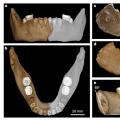About the university
Brief history reference about the university
On April 16, 1939, the leadership of the Krasnoyarsk Territory, on the initiative of the People's Commissariat for Education, recommended opening a teacher's institute in the city of Abakan.
The first director of the institute was Venedikt Grigorievich Dubov.
The institute had three departments and five departments, which employed 15 teachers and trained 100 students.
In 1940, a correspondence department was opened.
In 1943, the department of "Khakas language and literature" was opened, head. department Fazyl Garikovich Iskhakov - turkologist.
In 1944, the leadership of Khakassia turned to the region and Moscow with a request to open a Pedagogical Institute. And on February 10, 1944, on the basis of the teacher's institute, the Pedagogical Institute was opened with the faculties: Russian language and literature; historical; physical and mathematical.
Director - A.N. Parkhomenko. Uniform departments have been created: Marxism-Leninism; pedagogy and psychology; stories; literature; language; physics and mathematics; physical training.
120 people were recruited. The Pedagogical Institute became an intellectual support for the creation in April 1944 of the Institute for the Improvement of Teachers, the Khakass Research Institute of Language, Literature and History (October 1, 1944).
In 1961, the Faculty of Public Professions (FOP) was opened at the Abakan Pedagogical Institute, among the first institutions in the country.
In the 1970s and 1980s teachers of the Pedagogical Institute worked in 11 countries of the world. Since 1992, the institute began training foreign students(PRC) on their own base, trained translators. In the 1990s teachers from abroad were invited to the Pedagogical Institute. During the 50 years of its existence, the Institute has brought up and shaped the national cadres of the intelligentsia: the writer Nikolai Domozhakov; poet, playwright, author Mikhail Kilchichakov; poet Valery Mainashev; theater director Alexander Tuguzhekov. Hundreds of graduates of the institute head schools, schools, city and district departments of education, ministries.
In 1992, the Abakan Pedagogical Institute was named after N.F. Katanov. Over the years of its existence, the institute has released 2 million 1899 teachers. On June 19, 1994, the Government of the Russian Federation adopted Decree No. 724 "On the establishment of the Khakass State University." And in August 1994, the university was named after N.F. Katanov.
The university has licenses, accreditation and certification in all areas of educational and scientific activities. Initially, it was created as an educational institution like a classical university. In 2004, the university consisted of 12 institutes, 4 faculties, 61 departments, 5 colleges, 1 branch, 4 representative offices, graduate schools, 9 educational and research laboratories, a library, a publishing house, an information technology center, an educational and scientific center for pre-university education, scientific - industrial complex "Technopark", 5 model enterprises, agro-bio station, 7 sports halls, athletics arena, health center, catering plant, 14 hostels.
One of the leading educational institutions Republic. The educational process takes place using modern methods, and the teaching staff is represented by teachers of the highest category, professors and candidates of science.
About the university
On June 19, 1994, the Government Decree of the Russian Federation "On the Establishment of the Khakass State University" was issued. This day is considered the official founding day of the Khakass State University named after N. F. Katanov. Although the mention of it dates back much earlier.
As a higher educational institution, the university was mentioned in 1939. KhSU them. Katanov - ex. AGPI (Abakan State pedagogical institute), organized in 1939 on the "foundation" of the Abakan Teachers' Institute.
In 1929, for the first time in the Republic, a secondary specialized educational institution was created: the Khakass Pedagogical College, which is currently the College of Pedagogical Education, Informatics and Law of the Kharkiv State University. N. F. Katanov.
AGPI lasted until 1994. On June 19, 1994, a resolution "On the establishment of the Khakass State University" was issued. And already on August 10 of the same year, the institution was named after N.F. Katanov.
The university consists of 10 institutes, 3 colleges, including pedagogical, informatics and law.
In 2016, KSU received the status of one of the leading classical higher education institutions in the country. Students are provided with the following:
- a library with branches, reading rooms, with a computerized learning system;
- Research Institute;
- publishing house;
- legal clinic;
- information technology center;
- "School of programmers".
In 2016, a significant event took place in the life of the university: the opening of a new educational building, which is equipped with the latest education. It has all the conditions conducive to a decent education: equipped classrooms, modern laboratories, electronic reading rooms, etc.
All buildings are equipped with devices that greatly facilitate the life and the process of learning for people with disabilities.
The teaching staff of the institution consists of 40 professors with a degree of scientists and 256 candidates.
Graduates who have shown themselves worthily during their studies are provided with employment on the recommendation of the university.
current rector
Since January 22, 2015, the current rector of KSU is Tatyana Grigorievna Krasnova, professor, has a doctorate in economics.

In 1985, she graduated from Institute of Economics (today's Belarusian State University) in Irkutsk and received a degree in Economics and Organization of the Engineering Industry. In the year of graduation, Tatyana Krasnova worked at the KhTI, which was a branch of the Krasnoyarsk technical university. There, the future rector of KSU worked until 2002.
In 1991, Krasnova experienced her first professional and career upsurge. She brilliantly defended her Ph.D. thesis and became the head of the Department of Economics and Management, and after 3 years she took the position of Dean of the Faculty of Economics.
In 2002, Tatyana defended her doctoral thesis in the economy of the Republic. And after that, a new professional "rise" awaited her. Krasnova was accepted to the post of Deputy Mayor of Abakan on economic issues. Krasnova's career successes did not end there.
In 2010, the current rector of KhSU named after. Katanova was awarded a new position - the Minister of Economy of the Khakass Republic, where she worked until 2015, and then took the chair of the Rector of the University.
In the "piggy bank" of Tatyana Grigoryevna's achievements, the following is "stored":
- More than 200 works of scientific orientation.
- 9 publications on economics.
- 16 teaching aids, which are used not only within the walls of KhSU. Katanov.
- Order "For Merit to Khakassia"
- Title "Honored Economist of the Republic of Khakassia".
Variety and specialties
In the department of KhSU them. Katanov there are several institutes offering various specializations.

There are about 10 of them. Institutes:
- Natural Sciences and Mathematics (IENiM);
- IT and engineering education (IITIO);
- Arts (AI);
- history and law (IIP);
- continuous teacher education (INPO);
- Philology and Intercultural Communication (IFiMK);
- Economics and Management (IEM);
- medical-psychological-social (MPSI);
- agriculture (SHI);
- advanced training and retraining of personnel (IPKiPK).
The address
Since people come to the university from all over Russia, as well as from the CIS countries, applicants need to know the address of the educational institution: Republic of Khakassia, Abakan, Lenina Avenue, 92.

Institute of economics and management
KSU Katanov, whose specialties are highly valued in the market professional activity, prepares experts in the field of economics and management. In the future, they work for the benefit of the Republic of Khakassia. IEU is one of the leading departments of the university, which annually improves educational methods and develops modern disciplines.
Innovative teaching methods lead to the fact that Khakass University will soon become the center economic education in the Republic.
There are 4 departments in the structure of the institute, which are based on narrower specializations:
- Management.
- Economy.
- Philosophy and cultural studies.
Medical-Psychological-Social Institute
The institute has 6 departments with a narrow specialization for obtaining the highest form of education.
The department of the MPSI is a medical college, which recruits after 9 and after 11 classes. College of KSU Katanov, whose faculties are represented by 4 varieties, conducts the following types of training:
- Medical business.
- Nursing business.
- Pharmacy.
- Dentistry.

Graduates of the institute, who have shown themselves worthily during the academic years, get the opportunity to find employment in one of the city's hospitals on the recommendation of the rector. The university cooperates with several medical institutions in the city and region.
Institute of History and Law
IIP has the following departments:
- General history.
- History of the state of Russia.
- State law.
- Theory of Government and Rights.
- Civil law and process.
- International law.
- Criminal law and criminology.
- Criminal procedure and criminalistics.
A special scientific laboratory operates at the disposal of the last department. Its functions are as follows:
- Education. Practical classes are held in the laboratory, where students are taught technical and forensic methods.
- Practical research. The laboratory has all the devices for conducting research in the field of forensics and criminal practices.
Agricultural Institute
SHI has only two departments:
- Agronomy. It was opened on the basis of the Agrarian Faculty of KhSU in 1995 and was called the Department of Agriculture. After 4 years, another one was founded - "Plant". In 2010, the Department of Agronomy formed the educational structure of the Agricultural Institute, and "Agriculture" and "Crop Production" became components of "Agronomy".
- Veterinary medicine operates after educational reorganizations on 1.09.15. Before that, there were two separate specializations: morphology and physiology of animals and non-communicable diseases of animals, which were subsequently merged.
There is also an agricultural college, which is a structural institution of the SHI.
Institute of Arts
AI offers creative individuals to be trained in several areas:
- Applied art.
- Musical education.
- Folk art.
Not only gifted "yesterday" schoolchildren of the Republic of Khakassia enter the AI, but also visitors from the nearest Republics and regions. One of the primary goals of the Institute of Arts is the preservation of folk cultural values, and in addition, their multiplication.
Institute of Philology and Intercultural Communication
Chairs of IFMK:
- Foreign Linguistics and Language Theory.
- Foreign languages and teaching methods.
- Russian language and literature.
- Stylistics of the Russian language.
- Features and foundations of the philology of Khakassia.
Upon graduation, graduates build a successful career in the following specialties:
- Journalist, journalist-translator, media specialist.
- Linguist.
- Teacher.
A considerable number of graduates remain to work at KSU as teachers.
Institute of Natural Sciences and Mathematics

The educational program provides for a choice of 7 specializations, each of which provides for a complete study of one of the natural disciplines, for example, biology, chemistry, mathematics, etc.
In addition, to expand theoretical and practical knowledge, students are offered a huge collection of the Scientific Herbarium (both old and new samples), the Zoological Museum with an exhibition and detailed description presented exhibits, as well as a specialized laboratory with the latest equipment and modern research methods.
Institute of Information Technology and Engineering Education

The Institute includes 4 departments:
- Computer software.
- Production technologies and technosphere safety.
- Urban construction.
- IT systems.
The entire learning process takes place in modern-equipped classrooms. The teaching staff is represented by 76 teachers.
Who is right?
N. Friends devoted his whole life to proving the need to acidify the blood in order to be healthy. I. Neumyvakin all his life proved the opposite: it is necessary to alkalize the blood. Who is right? Why did they both die extremely sick, slagged to the sixth degree? The fact is that for the treatment of certain diseases of slagged people, they are both right. So Simonici treated cancer with soda, and Friends proved the need for blood acidification. But for a complete recovery of the body, they are both wrong!
Blood does not need to be specially acidified, because in any organism there are always citric and carbonic acids. You just need not to alkalize it! And how to do this if we eat mostly alkaline foods? I devoted a dozen years to this problem and in 2017 I found the possibility of turning alkaline products into neutral ones and they do not change the acidic reaction of the blood. And this is the basis of health!
How to create health.
Each person loses his health, acquires diseases from childhood. Diseases arise due to the fact that it enters the body. This is primarily water and food! Then come medicines, poisoned air, nicotine, alcohol, drugs, infections, injuries, prolonged stress, ...
In order not to get sick, to always be healthy, you need to fulfill only two conditions.
The first condition was established and proposed by F. Batmakhelidzh. To maintain the norm of water in the body (75% of the total weight). It is necessary to drink 2 - 3 liters per day and even more. The calculation is as follows: per kg of your weight you need to drink 40 ml in summer and 30 ml in winter. N. Friends ignored this condition ("drink whenever you want"), slagged to the sixth degree and died of cancer.
The second condition was discovered and will be offered in 2017 by F. Petrov, a veteran of KSU, a biolocator. It is necessary to turn alkaline foods into neutral ones!.
It is known that children are born with acidic blood (pH=6.9) of normal viscosity (5 units). Yes, in any organism there is always citric and carbonic acids to maintain an acidic reaction and normal blood viscosity.
Alkaline blood and diseases are caused by eating alkaline foods. Is it possible to turn alkaline foods (meat, dairy, fish, grains and water) into neutral ones and they will not alkalize the blood? It turned out that it is possible! This is what the Right Torsion Field does (this is my discovery). And I used this to create the Longevity Plus Biocorrector, which ensures the transition of alkaline products into neutral ones.
How does this happen? The products are alkalized by the presence of water-soluble calcium bicarbonate. The torsion field converts calcium bicarbonate into insoluble calcium carbonate with the release of water and carbon dioxide. Calcium carbonate precipitates and does not enter the bloodstream.
Glue the biocorrector on the bottom kitchen table and turn it into a source of the Torsion field. Now all the food and water on the table will be neutral and will not change the acidic reaction of the blood. Thus, a barrier to all diseases will be created. And so we came to the forefront of the science of nutrition and health of the body.
What about calcium for the skeleton? It enters the blood in other compounds, already in a smaller amount, but sufficient to maintain their strength. For the strength of the skeleton, collagen is needed, and it is produced in the body only with an acidic reaction of the blood. In alkaline blood, osteochondrosis, osteoporosis and destruction of the skeleton develop.
Scrupulously fulfilling two conditions for creating your health, we will get an excellent result in 2-3 months. And we will live without tragic diseases: without hypertension, stroke, heart attack, cancer, alcoholism and AIDS!
F. Petrov, veteran of the war and KSU, long-liver (96th year), dowser. 04. 01. 2018.
In Khakassia, which is a republic Russian Federation, the road to life and science for many people is opened by the Khakass State University named after M.V. Katanov. This is the largest university in the named subject of the country, which claims to provide a classical education and a secure future. And it's not just words. The university produces highly qualified specialists who are in demand in the labor market. Some of them have achieved success in their careers, have become famous personalities in the republic. Some of the graduates continue their studies at the university and begin to engage in scientific activities.
History of creation and modern period
Khakass State University was founded in 1994. However, this educational institution is not considered young. It adopted the traditions and experience of training qualified personnel from the Abakan Pedagogical University, which was opened in 1939 as a teacher's institute.
Today KSU is an educational institution that, in the status of a classical university, has been able to achieve a lot in a short period of time. It teaches both Russian and foreign students. Periodically, the university holds intra-university, regional, all-Russian and even international conferences. All this confirms the quality of education, the high level and authority of scientific teams.
The modern university is located in Abakan. Address: Lenina street, 90. Here is the main building. The educational institution has several more buildings located at different addresses. However, admission of applicants is conducted in the main building. This is where you need to come with documents.
Higher education at KSU: specialties offered at the bachelor's degree
At the Khakass State University, applicants entering after graduation are offered a bachelor's degree. This is the first step in the system of two-level education. Among all specialties, pedagogical ones can be distinguished. They train future primary school teachers, kindergarten teachers, subject teachers.
It is also worth noting that there are demanded specialties. These include: "Economics", "Management", "Jurisprudence", "Journalism". Young men who do not like the directions listed above can choose for themselves a more interesting and suitable one (for example, "Construction", "Computer Science and Computer Engineering").

Specialist in an educational institution
Khakass State University, in addition to undergraduate studies, offers a traditional system of education. It's called a specialist. In connection with the transition to a two-level education system, there are few specialties left in the university. These include only medical.
One of the specialties is "Medicine". It is suitable for those people who want to become doctors in the future. On a full-time basis, students study for 6 years. During this period, they study various medical disciplines, practice in clinics and hospitals.
The second medical specialty offered is Veterinary Medicine. The duration of training on it is 5 years on a full-time basis and 6 years on a part-time basis. In the initial courses, university students study general professional disciplines. In the future, they get acquainted with clinical diagnostics, obstetrics, internal medicine and other subjects.
Directions in the magistracy
Master's degree is the next step in the system of higher education. Every year the university offers more than 20 master's programs:
- "Psychology, clinical psychology";
- “Municipal and state administration, security government controlled and combating corruption”;
- "Jurisprudence, legal system Russia";
- "Journalism, socially oriented journalism";
- "Pedagogical education, information technologies in education";
- "Philology, intercultural communication and English language" and etc.
Each master's program at KSU (Abakan) includes a large amount of research work. This is the main difference between this stage of education and the areas of bachelor's and specialist's degrees. It should be noted that the master's research activities are always focused on solving practical problems in the field of economics, law, journalism, pedagogy and other sciences. Based on the results, students write master's theses.

education: specialties
Like many other higher educational institutions, it implements secondary education programs vocational education. There are about 20 of them. Programs belong to different fields of activity. For example, there are the following directions:
- "Computer systems and complexes";
- "Special preschool education";
- "Operation and construction of structures and buildings";
- "Fish farming and ichthyology";
- "Veterinary";
- "Nursing";
- "Medicine";
- "Pharmacy";
- "Musical art of the stage", etc.

University admission rules
When enrolling in KSU (Abakan) for higher or secondary vocational education programs, applicants provide a standard package of documents (passport, certificate or diploma, photographs, application) to the selection committee. Bachelor's and specialist's programs require 3-4 entrance examinations. Schoolchildren take general education subjects in the form of the Unified State Examination, and persons with secondary vocational and higher education take written or oral exams within the walls of the university.
Upon admission to the program of secondary vocational education at KhSU. Katanov selection committee requires the same documents. Enrollment is carried out according to the results of the competition of certificates. In some areas of training, creative examinations have been established, thanks to which auditory, performing and stage data, rhythmic and musical abilities are tested.

Thus, the Khakass State University is a university, thanks to which you can get both secondary vocational and higher education. A wide range of specialties allows each applicant to choose the right path in life.




